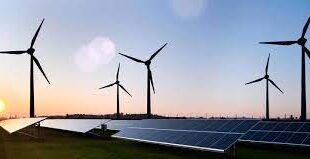Maintaining a flexible power system able to rapidly respond to changes on the grid is critical to avoiding power cuts on the UK’s road to net zero.
That’s according to a new analysis conducted by academics from Imperial College London for Drax Electric Insights, which highlights how a host of technologies helped stabilise the country’s energy system during a volatile start to 2020.
The research highlights that output from wind farms soared over the period, up by 40% compared to the same time in 2019 as severe storms swept across the nation – however, when output from wind power fell sharply on cold, calm days, the system was stressed and at one point came close to a blackout, with only 0.2GW of spare capacity available, compared to more than 4GW the following day.
The report notes flexible power stations and businesses working to reduce their power demand helped balance this out – technologies like biomass, pumped storage and gas were able to increase their output to meet demand, while factories and supermarkets reduced their usage to help maintain normal day-ahead power prices.
Once the country entered lockdown to contain the spread of the coronavirus, weekday demand for electricity fell by 13%.
Dr Iain Staffell of Imperial College London said: Britain’s electricity system is under pressure like never before, with both the country’s weather getting more extreme and a global pandemic testing its resolve.
So far in 2020 we’ve seen companies reducing their demand for electricity to help keep the grid stable when supply from wind power rapidly decreased, and then the Covid-19 lockdown caused many businesses to shut up shop, reducing electricity demand and creating new challenges with oversupply of power.
Having flexibility within the power system at these critical moments is crucial to keeping Britain’s lights on.
 Iran Energy News Oil, Gas, Petrochemical and Energy Field Specialized Channel
Iran Energy News Oil, Gas, Petrochemical and Energy Field Specialized Channel




